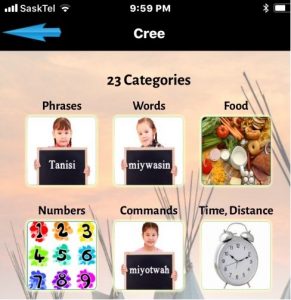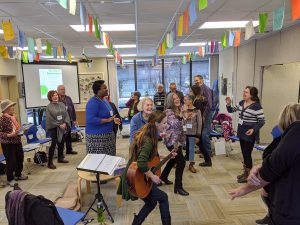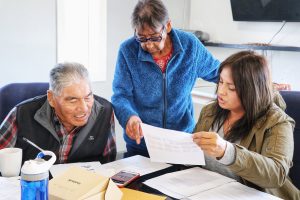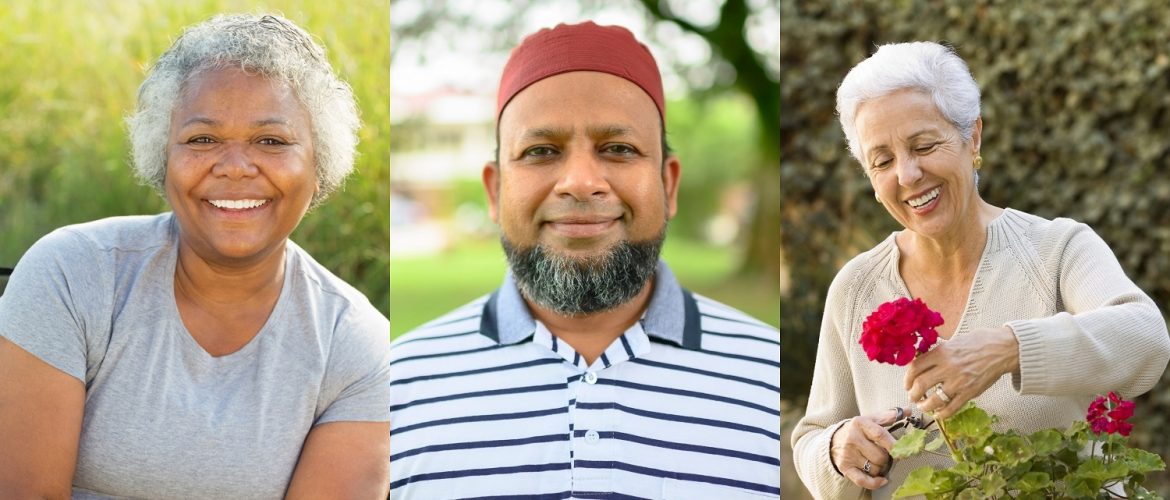“Culture is an important part of people’s determinants of health. We can’t afford to leave it out.”
– Sharon Kiptoo, CABHI project lead
COVID-19 has placed a spotlight on the need for senior care reforms in Canada. Yet, while more attention has been given to improving the well-being of older adults during this time, not much has been given to solving the equity gap that exists for racialized seniors and those born outside of Canada.
Existing challenges that older adults face, such as loneliness and social isolation, are amplified at the intersection of age, culture, and race. In fact, cultural and linguistic barriers are some of the most significant hurdles seniors born outside of Canada encounter when trying to access healthcare, according to the Toronto Central LHIN.[i] Being able to connect with a healthcare professional from a similar ethnocultural background, who speaks your language and understands your cultural needs, is an often overlooked component of providing comprehensive care to seniors.
As Canada’s population grows increasingly multicultural, and as the pandemic continues to widen the equity gap among racialized people, we can no longer ignore the unique needs of diverse seniors, or those for whom English is a second language. Aging and brain health innovators across Canada are working to make an impact in ethnoculturally diverse communities by creating solutions that improve quality of life and support equitable access to healthcare for all older adults. We’ve highlighted some of these solutions and their impact below.
Tamaduni Connect
Tamaduni, a word in Swahili that means “culture or traditions,” forms the foundation for a new project led by registered nurse, Sharon Kiptoo. The project, which has been aptly called Tamaduni Connect, brings seniors and caregivers from similar cultural backgrounds together. Currently in its pilot-phase, Tamaduni Connect helps seniors feel supported by pairing them with caregivers who share similar cultural values, languages, and traditions. In doing so, seniors will be better equipped to advocate for their own care needs and preferences. According to Kiptoo, culturally sensitive senior care is something we aren’t talking about enough – which she hopes to challenge. “Culture is an important part of people’s determinants of health. We can’t afford to leave it out.”
Indigenous Language App
 A CABHI-supported study, led by Dr. Carrie Bourassa, scientific director of the Canadian Institutes of Health Research, Institute of Indigenous Peoples’ Health, is exploring the effects of language development technology on the quality of life for Indigenous seniors, as well as helping caregivers adopt technology into their care routines. The study introduced a group of First Nations older adults to apps that use learning games and quizzes to engage users in five languages (Cree, Saulteaux, Dakota, Lakota, and Nakota). The project will assess both how engagement with language stimulates brain activity, as well as user needs in adopting the technology. The 15-month study predicts app use will benefit Indigenous older adults by making it easier for them to thrive in their setting of choice and receive support from caregivers in their communities.
A CABHI-supported study, led by Dr. Carrie Bourassa, scientific director of the Canadian Institutes of Health Research, Institute of Indigenous Peoples’ Health, is exploring the effects of language development technology on the quality of life for Indigenous seniors, as well as helping caregivers adopt technology into their care routines. The study introduced a group of First Nations older adults to apps that use learning games and quizzes to engage users in five languages (Cree, Saulteaux, Dakota, Lakota, and Nakota). The project will assess both how engagement with language stimulates brain activity, as well as user needs in adopting the technology. The 15-month study predicts app use will benefit Indigenous older adults by making it easier for them to thrive in their setting of choice and receive support from caregivers in their communities.
New Dementians Choir
Singing in front of others can be daunting, but as members of the New Dementians Choir have discovered, it can also be a fun way to connect a diverse community that embraces all people, regardless of their age, culture, or level of cognition. Program coordinator, Dorothy Leclair, and music therapist, Jennyfer Hatch, started the New Dementians Choir once they realized how much people living with dementia in their community enjoyed singing and being around music. Choir members hail from a wide range of countries, including Iran, Hong Kong, Singapore, and Russia. The choir’s diversity helps make it a place where people can celebrate their differences, but also learn more about what makes others unique.
Elder-led Care in Indigenous Communities
 Having access to community resources can promote independence in older adults and increase their ability to stay at home for longer[iv]. That’s why Dr. Sangita Sharma, a professor at the University of Alberta, is building an Elder-led training program that promotes social engagement, healthy living and education among Indigenous seniors. The project will connect Indigenous seniors and caregivers living in the Northwest Territories to information on nutrition, physical activity, and healthcare services through community-based events. Activities will include peer-led exercise classes, recipe sharing, and berry or medicine picking. With an approach that merges expertise from community Elders, knowledge holders, policy makers, caregivers and healthcare professionals, the program will be enriched with culturally relevant knowledge that can help Indigenous seniors age well at home. The final list of activities will be determined by community members who will benefit directly from the project.
Having access to community resources can promote independence in older adults and increase their ability to stay at home for longer[iv]. That’s why Dr. Sangita Sharma, a professor at the University of Alberta, is building an Elder-led training program that promotes social engagement, healthy living and education among Indigenous seniors. The project will connect Indigenous seniors and caregivers living in the Northwest Territories to information on nutrition, physical activity, and healthcare services through community-based events. Activities will include peer-led exercise classes, recipe sharing, and berry or medicine picking. With an approach that merges expertise from community Elders, knowledge holders, policy makers, caregivers and healthcare professionals, the program will be enriched with culturally relevant knowledge that can help Indigenous seniors age well at home. The final list of activities will be determined by community members who will benefit directly from the project.
Subscribe to CABHI’s Newsletter to receive more updates about the aging and brain health solutions making a lasting impact in the lives of older adults from ethnoculturally diverse communities.
[i] https://www.wellesleyinstitute.com/wp-content/uploads/2017/05/Diversity-and-Aging.pdf


